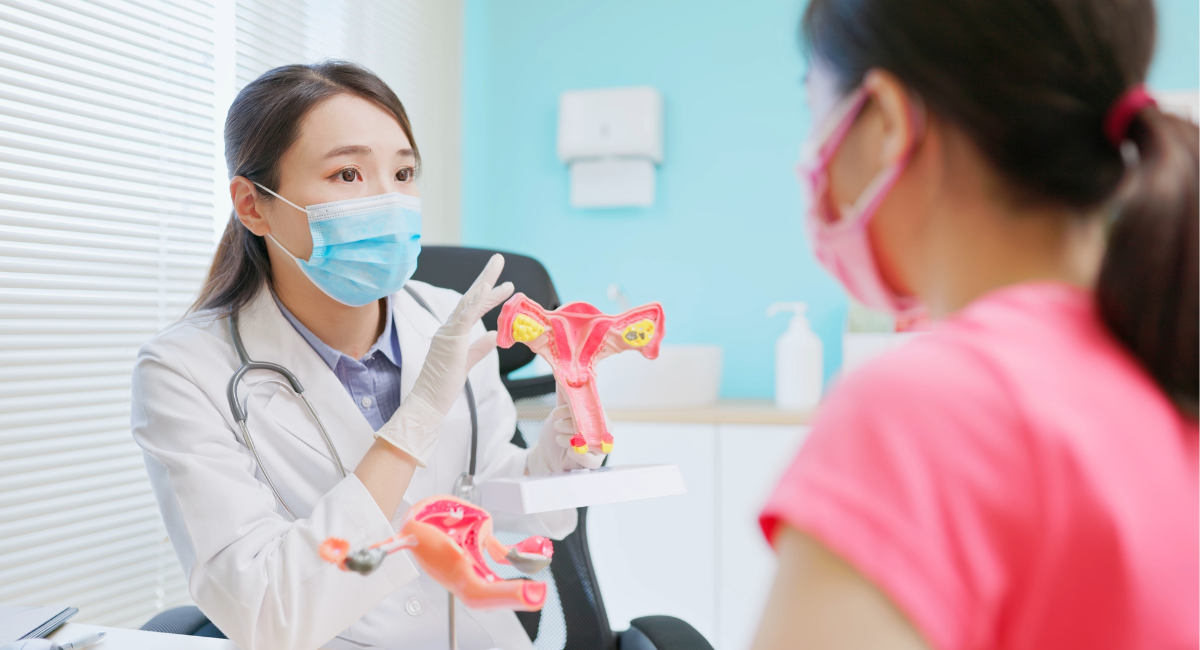A woman’s health journey is a complex and often confusing one, from the onset of puberty to the transition of menopause. Along the way, common issues like painful periods, hormonal shifts, and sexual health concerns can be a source of stress and misinformation.
This guide provides a fresh look at the Dos and Don’ts for navigating some of the most common women’s health issues, giving you actionable, evidence-based advice to help you feel your best.
Painful & Irregular Periods

It’s a myth that severe period pain is a normal part of being a woman. Pain and irregularity can be your body’s way of signalling a deeper issue, and you shouldn’t have to suffer through it.
- DO Track your cycle. Using apps like Clue or Flo (or just search for “period tracker”) can help you keep a detailed record of the timing, length, and intensity of your period, which can provide a doctor with crucial information.
- DO Consider an anti-inflammatory diet. Instead of reaching for painkillers, try incorporating foods rich in omega-3 fatty acids (like salmon and walnuts), ginger, and turmeric into your diet. These can help reduce inflammation and ease cramps.
- DON’T Dismiss severe pain. Don’t accept debilitating pain as normal. Conditions like endometriosis or polycystic ovary syndrome (PCOS) are common but can be diagnosed and managed with your doctor’s help.
- DON’T Rely on a one-size-fits-all solution. What works for a friend’s birth control or a popular workout plan may not be the right fit for your body. It’s important to find a personalised management plan with the help and guidance of a doctor.
For Menopause & Perimenopause

The lead-up to menopause is a significant transition for many women, marked by hormonal fluctuations that can cause a wide range of symptoms. Navigating this period requires a proactive approach.
- DO Prioritise strength training. Menopause is associated with a decrease in bone density. Regular strength training not only helps to preserve bone mass but can also help regulate mood and reduce the frequency of hot flashes.
- DO Focus on getting good, quality sleep. A cool, dark, and quiet environment is key, but so is a consistent sleep schedule to help regulate your body’s internal clock.
- DON’T Ignore your symptoms. Don’t dismiss symptoms like night sweats, mood swings, or changes in libido as just “part of getting older.” Discussing these symptoms with your doctor can help you find a management plan, including Hormone Replacement Therapy (HRT) or other non-hormonal treatments and lifestyle changes.
For Vaginal & Sexual Health

It’s common for women to experience vaginal and sexual health issues, but it’s often a topic surrounded by silence and embarrassment. These issues are almost always treatable and shouldn’t be ignored.
- DO Speak up about pain or changes. Pain during intercourse, changes in libido, or vaginal dryness are common symptoms that can be linked to hormonal changes or underlying conditions. The first step to finding relief is to have an open conversation with a doctor.
- DO Be proactive about vaginal health. Simple habits like wearing cotton underwear, avoiding scented products, and maintaining a healthy diet can help prevent common issues like yeast infections and bacterial vaginosis.
- DON’T Self-diagnose with Dr. Google or AI. The internet and AI can provide general information, but a proper diagnosis requires a doctor’s expertise. What may seem like a simple infection could be a symptom of something more complex.
[Read: What to expect during your consultation for Emergency Contraceptives]
The Essentials at Every Age

Regardless of your age or life stage, there are certain essentials that are a non-negotiable part of your health journey. These are the foundations of proactive care.
- DO Get regular screenings. Pap smears and HPV vaccinations are vital tools in preventing cervical cancer. A doctor can help you determine the right screening schedule for you.
- DO Maintain an open dialogue with your doctor. Your doctor is your health partner. By having an open and honest conversation about your sexual and reproductive health, you can gain a deeper understanding of your body and ensure you’re getting the personalised care you need.
[Read: 10 Essential Health Screening Tests Every Woman Needs and Why]
Navigating your health can be a challenging journey, but you don’t have to do it alone. By staying informed and making proactive choices, you can take control of your well-being.







